On October 17, 2019, a monumental event unfolded on the streets of Lebanon, marking a historic departure from the norm dating back to 1954. The Lebanese populace collectively declared, “Enough is enough,” initiating widespread protests that reverberated throughout the capital city.
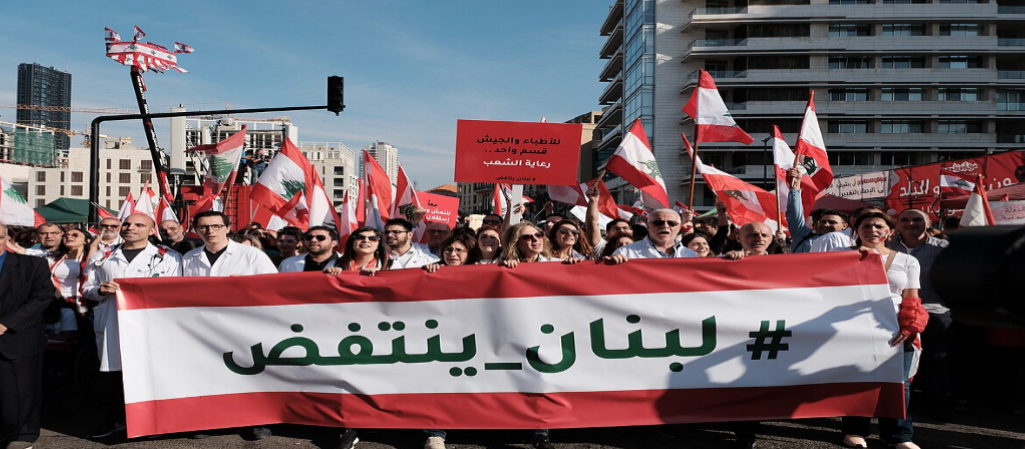
Figure 01: “Lebanon is rising up,” held by Lebanese protests on the streets. (Source: Nadim Kobeissi from Paris, France, CC BY 2.0 <https://creativecommons.org/licenses/by/2.0>, via Wikimedia Commons)
The catalyst for these civil protests was the proposed imposition of taxes on tobacco, gasoline, and Voice over Internet Protocol (VOIP) calls through applications like WhatsApp. However, as the government persisted in neglecting the people’s demands, tensions mounted, causing the streets to ignite in turmoil and prompting a nationwide denunciation of sectarian rule.
The emergence of the Independents, a revolutionary coalition, represented the people’s aspirations to fight against corruption. This diverse movement entered politics, contesting the 2022 elections. However, the question still stands, as the political scene changes: where are the independents now?
Figure 02 and 03: The independent parties for the Lebanese elections 2022. (Source: SawtiVoice, https://www.sawtivoice.org/explore-the-alternative.)
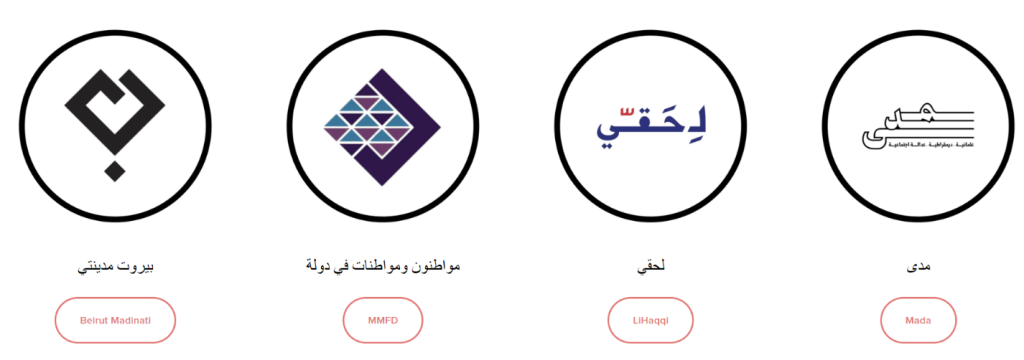
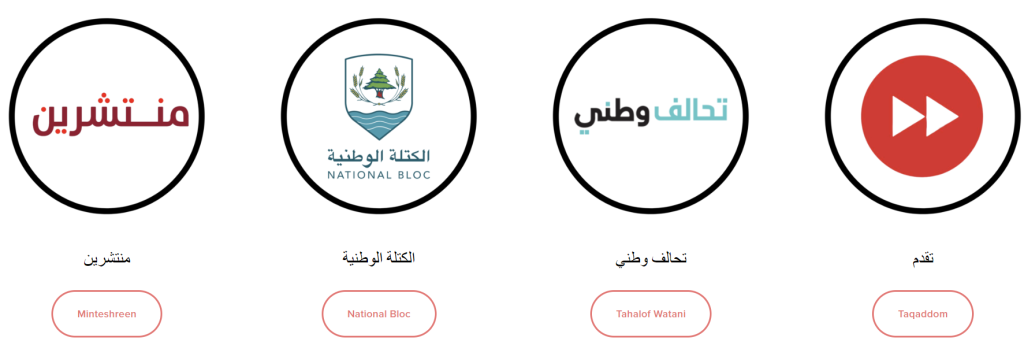
To begin with, October 17, 2019, was a catalyst for a progressive shift in the collective mindset, compelling individuals to hold politicians accountable for their actions over the preceding 30 years. After the announcement of the election date, various political parties began preparing their candidates and strategies following two years of humiliation and pressure. Meanwhile, independent civil societies engaged in negotiations with each other regarding how and where they should field their candidates and whether they could make inroads into the parliament.
As a result of the negotiations, the independent bloc declared its political members, originating from diverse backgrounds, including: Mada, LiHaqqi,MMFD, Beirut Madinati, Taqaddom, Minteshreen, National Bloc, Tahal of Watani. Next, the reformists launched their campaign with the slogan “the changers,” asserting that if they were to secure seats in parliament, they would hold the elites accountable for their corrupt actions and abuse of power within the state.Additionally, the independents emphasized that their electoral program contained clear and effective solutions for Lebanon’s economic crisis, which has led to a significant devaluation in the value of the dollar and the loss of people’s money through corrupt government practices, the Banque du Liban (BDL), and the banking sector. Furthermore, they presented numerous solutions addressing environmental and monetary concerns, including reducing inflation, decreasing unemployment rates, promoting transparency within the government, resolving the electricity crisis, and, crucially, limiting Hezbollah’s influence in government affairs while prosecuting those responsible for the Beirut port explosion on August 4th. These initiatives formed part of the agenda for the candidates all over Lebanon.
On May 16, 2022, the Minister of Interior Affairs declared the results of the parliamentary elections, where the independent party achieved significant success by securing 13 seats, occupying 10 percent of the parliament. This accomplishment was revolutionary given the entrenched influence of established parties. Moreover, the independents garnered significant support from the people, thereby enhancing the success criteria of the independent movement. Their initial success stemmed from their candidates promoting a civilized campaign, in stark contrast to the elitist campaigns. Their successful environmental promotion included addressing the garbage crisis sparked by the closure of Lebanon’s main landfill in Naameh in July 2015, leading to government indecision on finding an alternative site.
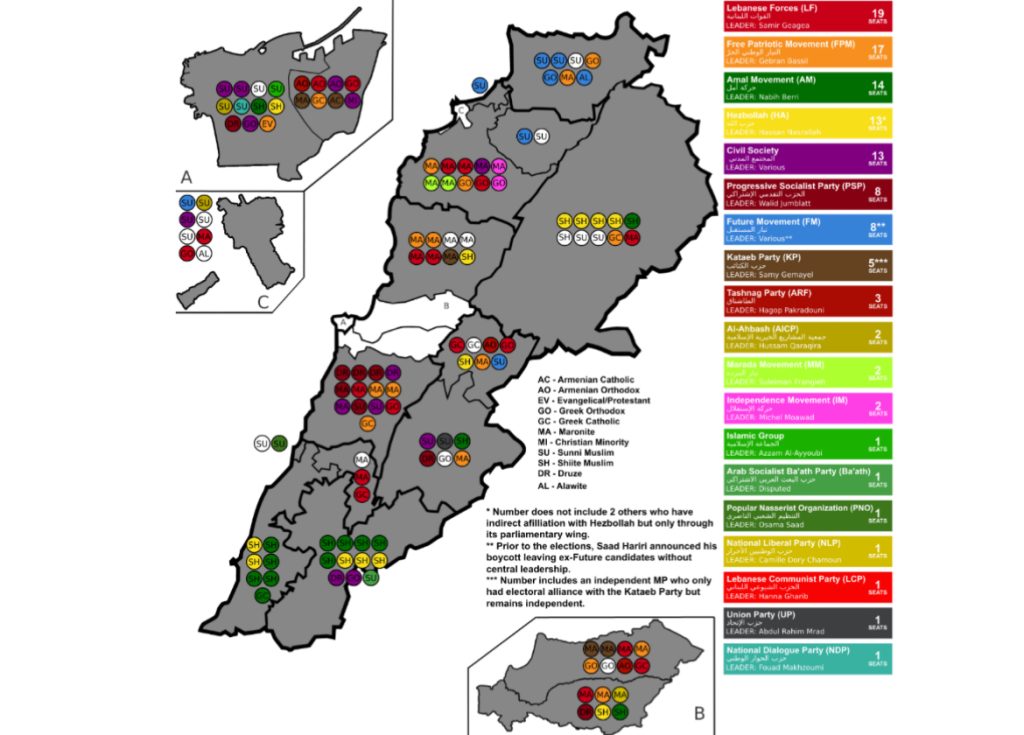
Figure 04: A graphic representation of the general election in Lebanon in 2022. (Source: Wikipedia, https://en.m.wikipedia.org/wiki/File:2022_Lebanese_General_election_map_results.png)
Here are some examples of independent candidates who have achieved success: Firstly, Dr. Najat Saliba, who is running for the Maronite seat in the Chouf district, has emphasized the importance of preserving natural green spaces in the country, nurturing eco-life to promote healing, and offering a solution to Lebanon’s trash problem. Additionally, Dr. Saliba, an innovative leader in the Lebanese ecosystem, co-founded the Environmental Academy, achieving significant progress in the environmental field. She spearheaded a recycling plan through the academy, effectively managing 12 tons of waste daily.
Secondly, another candidate running for the 2022 election was Mia Atoui, a 34-year-old clinical psychologist, co-founder of the mental health organization ‘Embrace,’ and the founder of Lebanon’s only suicide prevention hotline. She is representing the Mintshreen party. The role that the reformist played in this campaign was spreading and creating awareness about suicide. During her campaign, Atoui declared to a journalist, “We realized that the political class and the people in power are ready to do anything to maintain their power.”
Thirdly, Marc Daou, running for the Druze seat in Al Shouf Alley, announced a banking sector reform plan on TV. It included passing a law for capital control to prevent illicit transactions, merging Lebanese banks, compensating depositors with less than $100,000, and holding banks, Bank du Liban, and the government accountable for losses incurred by depositors.The political activist, in an interview with Al-Jadeed channel, stressed the importance of implementing capital controls by the Banque du Liban to prevent money from leaving Lebanon. He emphasized the banking sector’s responsibility to support the Lebanese people without engaging in politics, highlighting their significant partnership within the Authority.
Lastly, another key success, was the reformists’ supervisory role in parliament. Deputies, including Melhem Khalaf, Osama Saad, Paula Yacoubian, Yassin Yasin, and Charbel Massad, posed 13 questions to the government regarding its plan to address potential Israeli aggression.
Unfortunately, challenges transformed success into failure for many of the independents, who encountered various obstacles, including their inability to form a unified coalition with cohesive strategies and ideologies. After several months in office, issues began to surface in the media as disagreements among the MPs emerged regarding various ideologies, leading to resignations from the coalition. The “change” deputies failed to establish themselves as a significant force for change due to their disunity, lack of a clear political and parliamentary agenda, and inability to secure key positions within the parliament. This facilitated “Hezbollah” and its allies in regaining control of the parliament by securing positions such as the presidency and vice presidency. Sustaining momentum remains challenging. Progress, however, is constrained by entrenched interests, corruption, and economic downturns. As a result of the various challenges faced during this campaign, the coalition has lost public interest as they have failed to meet expectations on multiple fronts, as mentioned earlier. Protest groups that emerged on October 17, representing the call for change and reform in Lebanon, expressed a deep lack of trust in the reformist leaders who are now in power. A strong demand for their resignation from their positions of leadership has resulted from this feeling. This brutal shift highlights the seriousness of the issue and the protesters’ unwavering dedication to their cause.
In conclusion, the history of independent politicians in Lebanon highlights both their early successes and the challenges they have subsequently encountered. Despite their success in winning seats in parliament and public support, internal tensions and previous political systems have hindered their ability to implement meaningful reforms. Demands for reformist politicians reflect rising frustration and a strong desire for real change. Lebanese people persistently hold leaders accountable amid ongoing challenges, signaling a relentless pursuit of a brighter future.
If you like our content, join us in helping to bring reality and decency back by SUBSCRIBING to our Youtube channel: https://www.youtube.com/channel/UCQ1Ll1ylCg8U19AhNl-NoTg AND SUPPORTING US where you can: Award Winning Independent Citizen Media Needs Your Help. PLEASE SUPPORT US FOR JUST £2 A MONTH https://dorseteye.com/donate/

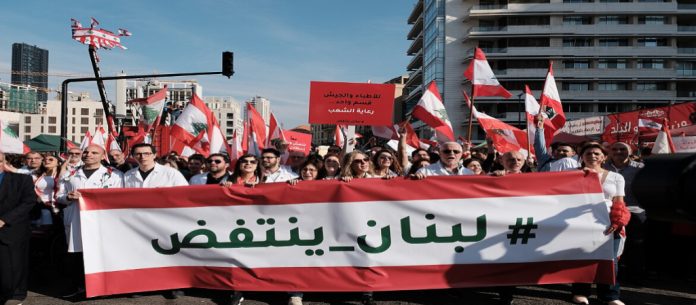






👍🏻👍🏻